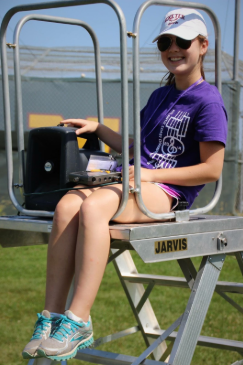How to Ace Your College Interview

Most interviews will likely take place at Starbucks, or a similarly neutral location (Google Common License)
Now that most early action and early decision applications are submitted, the next step can be even more stressful for seniors: the college interview.
Many colleges recommend (but do not require) an interview with a local alumnus. Some schools, especially public schools with staggering applicant statistics, do not offer interviews. Regardless, most high school seniors will have to interview at some point.
Colleges recommend interviews for a few reasons. Your college interviewer is most likely going to write down their perception of your strengths, goals, and personality. This is so admissions counselors can get a good idea of whether you would be a good fit at their school. It’s not just about statistics anymore; a student with a clear passion for something is more likely to appeal to an interviewer than a student who doesn’t display any interests.
It’s important to know before going in that the college interview does not make or break your chances at getting into a certain school. Your interviewer will most likely tell you that they don’t know how much of a difference the interview makes to admissions. However, you definitely want to make a good impression on your interviewer, so here are a few tips.
What to Wear:
Think about your outfit in advance, or at least a little more in advance than five minutes before you need to leave. It doesn’t need to be incredibly formal, but you do want to look professional.
Guys: dress pants or khakis are a good choice, paired with a button-down shirt or a sweater. Don’t wear sneakers- dress shoes are much more respectable. If it’s cold out, try not to bring a sweatshirt. Instead, a nice jacket (or no jacket at all, if your only option is a sweatshirt).
Girls: a suitably formal dress is a good option, but try not to wear a dress that exposes too much. A sweater or blouse paired with a skirt is also appropriate. If you don’t want to wear a skirt, dress pants or dark jeans can work, as long as you wear a more formal top or jacket.
Accessories can include scarves, watches, or simple jewelry. Don’t go too heavy with perfume or cologne, but antiperspirant or deodorant is a must.
Questions to Expect:
No college interviewer will ask the same questions, but here are some topics to think about.
Why do you want to go to this college?
What do you want to study in college?
What are you passionate about outside of school?
What is something you want admissions to know that isn’t in your application?
Keep in mind that while you want to present the best version of yourself, you want to be genuine. The ‘right’ answers won’t matter if you sound like an over-rehearsed robot. You also should probably brush up on some knowledge or experience you want your interviewer to know. For example, an interviewer will ask you some clarifying questions about your intended major or things that you’re passionate about. A hopeful English major might want to think of some books (and authors) that were particularly enjoyable or meaningful. Someone interested in computer science should think about why he/she wants to study computer science (money isn’t a good answer!). Seniors interested in politics should go over the results of the midterms, or at least have some viewpoints on politics today. It shouldn’t be hard. Prove to your interviewer that you really are passionate about what you say you are- you’re not just saying something to look good.
Some other tips:
Show up a few minutes early to your interview.
Bring a notebook and pen (you don’t have to write in it, but it makes you look more engaged)
Don’t go on your phone while waiting for your interviewer to arrive!
After your interview, send your interviewer an email saying thank you.
Good luck!

Lauren • Dec 6, 2018 at 11:03 am
Really good advice. I like the format and the “questions to expect” are helpful. Great article!
Gabriel Peralta • Dec 6, 2018 at 11:02 am
I can relate to this article, I had some college interviews and I used most of your advices.
Jessie • Dec 6, 2018 at 11:00 am
What am I supposed to do in a waiting room if I shouldn’t be on my phone? The agony.
Jaron Cole • Dec 6, 2018 at 11:00 am
Thank you for this article! It was very helpful and now I feel more prepared and knowledgeable going into some upcoming interviews. Thanks Ellie.